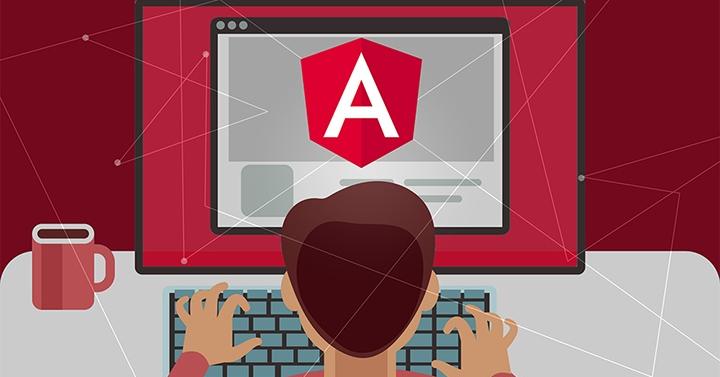Angular framework is a robust platform that allows developers to create scalable applications. Its dynamic nature allows for building an app with smooth navigation and interaction.
Businesses across the world are realizing its potential and hence, the demand to hire Angular developers has gone up. But hiring is not just about filling up a role. It’s about hiring the right talent who aligns with your vision of the application.
As an employer, you need to ensure that the hired candidate is technically sound and has good soft skills. Also, their overall compatibility with your company and team’s culture matters a lot.
In this article, we will be exploring 9 crucial interview questions to ask an Angular developer during an interview. These questions will help you gauge an individual comprehensively.
Understanding Angular: The Basics
Before we delve into the questions, it is important to have some background about Angular. Angular is a platform and a framework that allows the building of client-side applications. It includes HTML, CSS, JavaScript/TypeScript, and more.
It provides a framework for client-side model-view-controller (MVC) and model-view-view-model (MVVM) architectures. This simplifies the development as well as the testing process of the applications.
When you look to hire Angular developers, you must ensure that you pick talents who are well-versed in Angular. They must be able to extract the most from it to find solutions tailored to your business needs.
9 Essential Interview Questions for Angular Developers
Hiring the right Angular development talent can be the difference-maker for your project. To help you make an informed choice, here is a list of 9 Angular developer interview questions:
1) What is the difference between AngularJS and Angular?
AngularJS is the first version of the Angular framework. Angular pertains to Angular 2 and the next versions in that order. They are both different in structure, language, expression syntax, and more.
2) How do you define a service in Angular?
A service in Angular means a function or an object that is reusable anywhere in the application. It can be defined using the @Injectable() decorator and can be injected anywhere using dependency injection.
3) Explain the significance of the ngOnChanges lifecycle hook.
When Angular notices changes to the input properties of the component, it calls the ngOnChanges hook. It is quite useful while executing logic whenever an input property changes.
4) How do you handle errors in Angular applications?
An ErrorHandler class is offered by Angular. It takes care of exceptions globally. Moreover, developers can use try-catch blocks, HTTP interceptors, and their third-party services.
5) How do you manage state in Angular applications, especially in larger and more complex projects?
State management is a crucial part of Angular, especially while working on large apps. The answer to this should include the use of services and observables. The mention of NgRx or other state management libraries can also be expected. For more challenging projects, the candidates must highlight scalability, maintainability, and performance.
6) How do you optimize the performance of an Angular application?
Optimization techniques include using the Change Detection Strategy, OnPush strategy, lazy loading modules, implementing trackBy with ngFor, and using the AOT (Ahead-of-Time) compiler.
7) Explain the purpose of the async pipe.
The async pipe provides the most recent value that it has emitted. It subscribes to an Observable or Promise. To reduce the chances of memory leaks, it automatically unsubscribes from the Observable.
8) How do you ensure security in your Angular applications?
Web developers can avoid cross-site scripting (XSS) by not making direct use of the DOM APIs. They can also avoid server-side code execution by verifying user input. They may use the Angular HttpClient to prevent cross-site request forgery (CSRF).
9) Describe the difference between Observables and Promises.
Observables are sets of multiple values over some time. They are cancellable and versatile, supporting map, filter, and reduce functions. On the other hand, Promises only manage a single event.
Ask these questions and pair them with a practical task. That way you can get an idea about their skills and aptitudes both.
Why These Questions Matter
Hiring Angular developers is more than just a technical assessment. You must know about their problem-solving abilities and understanding of best practices. They should also be highly adaptable to take on newer challenges now and then. These questions are curated to provide a holistic view of a candidate’s abilities.
1) Depth of Knowledge:
The above list includes a range of basic to advanced questions. The answers to these questions will surely give you a holistic view of the candidate.
2) Practical Application:
Questions involving error management, performance optimization, and security reveal the candidate’s practical experience. They help in learning about their ability to tackle real-world problems.
3) Conceptual Understanding:
Certain topics like Observables and promises or Dependency Injection reveal the candidate’s conceptual knowledge. They must have clarity about ‘why’ rather than just knowing ‘what’.
4) Adherence to Best Practices:
Angular is undoubtedly a powerful framework. But as the popular saying goes, ‘With great power comes great responsibility’. Following the best practices, especially those involving security and performance, is a must.
These questions act as a litmus test for a web developer’s skills in Angular. But always remember to never overlook soft skills and cultural compatibility. They matter just as much as the technical skills.
Summing up
By hiring Angular developers for your project, you will see a significant difference. But to ensure you hire the right talent, ask the right questions in the interview. You must gauge the talents for their technical prowess, problem-solving ability, and adaptability.
While these questions can give you a solid foundation, don’t miss out on taking a practical test. The combination of the interview and practical assessment shows an overall compatibility. This process may sound overwhelming to some of you, especially considering its complex nature. In that case, do not hesitate to reach out for professional help to hire Angular developers.

